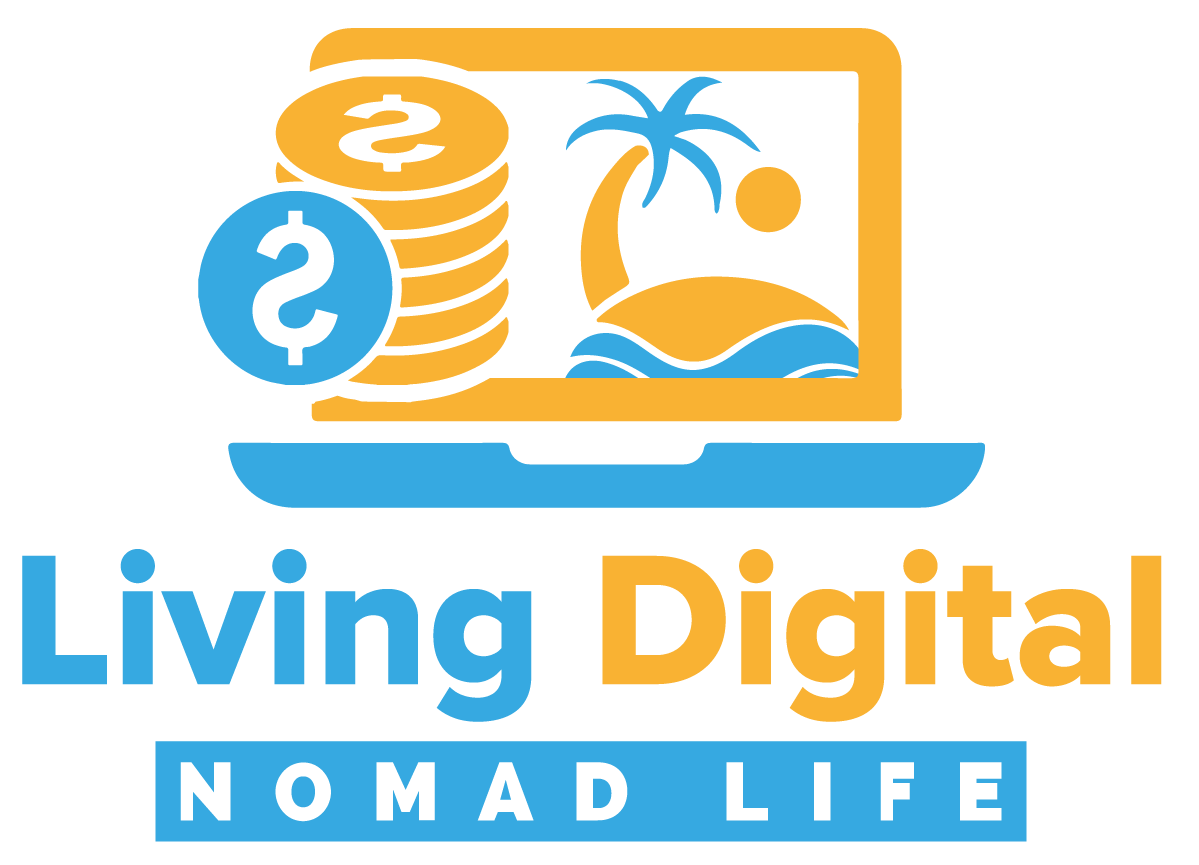Interested in the digital nomad lifestyle? You’re not alone. This movement has exploded as more people crave the freedom to travel and work from anywhere in the world. But what’s behind this trend? It’s simple: technology has advanced to a point where many jobs no longer require a physical presence in an office, setting the stage for remote work to become the new norm.
The shift towards remote jobs isn’t just a minor adjustment; it’s revolutionizing the way companies and individuals think about employment. For the savvy job seeker, this means endless possibilities. You can work for a company thousands of miles away, or even on another continent, all without leaving your living room, a beach in Bali, or a cafe in Paris.
One thing is clear: embracing this lifestyle isn’t just about finding a job that lets you travel. It’s also about finding work that satisfies your professional ambitions and passions. This dynamic means that remote work offers benefits across the board. Companies can tap into a global talent pool, reducing overheads and fostering diversity, while workers like you enjoy unparalleled flexibility and work-life integration.
So, how do you transition from a traditional office job to becoming a fully-fledged digital nomad? The first step is understanding how to make yourself an attractive candidate for remote work. Whether you’re just starting out or looking to switch careers, positioning yourself for success in the remote job market is essential.
Preparing for Success: How to Position Yourself for Remote Opportunities
Alright, now that you’ve got a feel for what being a digital nomad entails, let’s talk about how you can gear up for success. It’s not enough to just want to work remotely; you’ve got to show potential employers that you’re built for this lifestyle. This is about more than skills and experience. It’s about demonstrating that you can thrive in an environment that demands self-motivation, excellent communication, and a whole lot of discipline.
Updating your skillset is the first order of business. The digital world moves fast, and staying on top of trends can put you ahead of the pack when looking for remote jobs. Think about the tools and technologies that are in demand in your field and start brushing up. Platforms like Udemy, Coursera, or LinkedIn Learning can help you make strides in everything from digital marketing to coding.
Next, you’ve got to work on your personal brand. In the remote job sphere, first impressions are often made online. Ensure your LinkedIn profile is pristine, your portfolio is polished, and your social media feeds reflect your professional interests. If you’re a designer, for example, a well-curated Instagram page can serve as a dynamic extension of your portfolio.
Networking is another crucial piece. You’re going to find out about more opportunities through connections than any job board can offer. Join digital nomad communities, engage in industry forums, and don’t shy away from reaching out to people whose work you admire. Platforms like Twitter and LinkedIn are ideal for this. Remember: your next job could just be a conversation away.
Once your skillset is sharp and your online presence is strong, you’re in an excellent position to transition smoothly into the hunting phase of finding the ideal remote job. So, in the next section, we’re going to dive into the strategies for navigating the job market. Expect tips on everything from identifying the right job boards to understanding the remote work culture at various companies. Let’s make sure your transition into remote work is as seamless as your internet connection should be.
Navigating the Job Market: Strategies for Finding Remote Jobs
I’m going to show you how to sift through the job market like a pro. Finding remote jobs isn’t just about hitting the search button; it’s also about knowing where to look and how to stand out. The internet is your ultimate job fair for remote work, and I’ll guide you through the best strategies to make your search efficient and successful.
You’re going to start by digging into specialized job boards. Websites like We Work Remotely and Remote.co are curated spaces specifically for digital nomads like yourself. They cater to those seeking remote opportunities and make it easier to find listings that align with your desire for flexibility and independence.
Another savvy move is to research companies known for a remote-first culture. Buffer, Automattic, and Basecamp are a few names that might ring a bell. Not only do these companies advocate for remote work, but they also understand the unique dynamics that come with it—which is fantastic for someone like you just starting out as a digital nomad.
And if you think regular job listings are off the table, guess what? They are. But you’ve got to be a bit of a detective here. Look carefully at listings on platforms like Indeed or LinkedIn and watch for keywords that indicate remote possibilities. ‘Remote-friendly, ‘ ‘telecommute option, ‘ or ‘work from any location’ are phrases that should lighten up your radar.
Let’s not forget that sometimes the direct approach can pay off too. If you want to, you can reach out to companies you admire, even if they aren’t currently advertising remote positions. Sending a well-crafted message explaining why you’d be an asset to their remote team can sometimes create opportunities where none seemed to exist.
This natural transition into the next section revolves around the truth that sometimes, finding the perfect remote job means creating one for yourself. And that’s exactly what I’m here to help you with in the next part of our guide. There’s a lot of opportunity to monetize your skills online, and I’m excited to dig into that with you.
Monetizing Skills Online: Diverse Ways to Make Money as a Digital Nomad
You’re probably well aware that the digital nomad lifestyle hinges on the flexibility of where you work and how you earn your bread and butter. Making money online is a cornerstone for sustaining this adventurous way of life.
The internet is bursting with avenues to turn your skills into cash. Freelancing platforms like Upwork and Fiverr might be the first that comes to mind. They allow you to offer just about any service you can do from your laptop. I’m talking about web design, copywriting, or even consulting; the list is really extensive.
Starting a blog requires patience and a knack for content creation, but it can become a real goldmine. Once you’ve built an audience, you can monetize through affiliate marketing, sponsored content or even sell your own products or services. And this is not a pipe dream, I’ve seen it happen time and time again.
Another avenue is teaching. Platforms like Teachable or Udemy can be your stage if you’ve got a skill to share. Whether it’s yoga, language lessons, or coding, teach it online and get paid for it.
As for the kick-off of your own remote business, it’s no cakewalk, but the rewards can be substantial. Whether it’s e-commerce, digital marketing, or software development, choosing something that resonates with you will make all the difference.
Remember, while it’s crucial to start rolling in some dough, it’s equally important to maintain a long-term perspective for your digital nomad journey, which brings us smoothly to the next point of discussion—sustaining your journey over the long haul.
Sustaining Your Journey: Long-Term Considerations for Remote Work
You’ve got the freedom now, but sustaining a digital nomad life isn’t just about finding remote jobs—it’s about making it work long-term. Achieving the right work-life balance is key. Believe me, without it, you could either burn out or miss out on the experiences of being a digital nomad. Establishing routines, setting boundaries, and knowing when to unplug will help you maintain your mental health and productivity.
The digital world moves fast, and staying relevant means being committed to continuous learning. Whether upgrading your tech skills, learning new languages, or understanding diverse cultures, keep your mind sharp and your qualifications current. Online courses, webinars, and digital resources are your allies in this journey.
Now, the practical stuff can’t be ignored. As a digital nomad, keeping a tab on remote work’s legal and tax aspects is crucial. It can be a maze, but you must understand visas, work permits, and taxation laws in your home country and the places you travel to. Seek professional advice if you need it, stay organized, and you’ll be good to go.
Being a digital nomad isn’t just a trend—it’s a lifestyle. If you embrace it with the right mindset, it offers an exciting world of possibilities. Remember, your first attempt doesn’t need to be your last. Be flexible and adapt; you’ll learn about new opportunities at every turn. Stay curious, stay responsible, and keep that nomadic spirit alive!







4 Responses
This is a very helpful and informative guide for anyone wanting to work online, to find a job that will allow them to work remotely. With the advancement in technology, online work has certainly become a reality for many people.
You mentioned keeping your LinkedIn profile updated, as well as Twitter. But is there an alternative to Twitter that you can recommend? How easy is it for a beginner to get started online? How much time should one allow before you can expect to earn online? Thank you.
Hi Line!
Thank you for your kind words and insightful questions! It’s wonderful to hear that you found the guide helpful.
Regarding alternatives to Twitter for online networking and visibility, one platform you might consider is Mastodon. It’s a decentralized social network that offers a similar microblogging experience. Another option is the tried an true FaceBook. FB is especially great for helping you promote your business and helping your readers and future customers find your content and products.
Getting started online as a beginner can vary in ease depending on your skill set and the type of work you’re looking for. However, many online platforms and resources offer beginner-friendly ways to learn and find work. I suggest starting with platforms like Coursera or Udemy to learn new skills and then using job boards such as Fiverr or Upwork to find initial gigs or projects.
The time it takes to start earning online depends on the industry and your approach. Some freelance work can yield income quickly, especially if you have a sought-after skill. For more long-term projects like blogging or content creation, it could take several months to a year to start seeing a significant income. It’s important to set realistic expectations and be prepared to invest time in building your online presence and network.
I hope this helps answer your questions. If you need any more advice or have other inquiries, please feel free to reach out again!
Hello, your comprehensive guide to remote work for digital nomads is a goldmine of insights and practical tips for anyone looking to embrace the freedom of working from anywhere. From positioning yourself for success to navigating the job market and monetizing your skills online, you covered all the essential aspects of the digital nomad lifestyle. Whether one is a seasoned remote worker or just starting out on journey, this guide has something valuable to offer. Thank you for sharing!
Hi Ela!
Thank you for your kind words and for taking the time to share your thoughts on my guide! It’s always a pleasure to hear that you’ve found the content valuable, whether for seasoned digital nomads or those just beginning to explore the possibilities of remote work.
If there’s anything you’d like to know more about or have any questions, please don’t hesitate to let me know. Your feedback is always appreciated and helps me improve my articles.
-Kyle